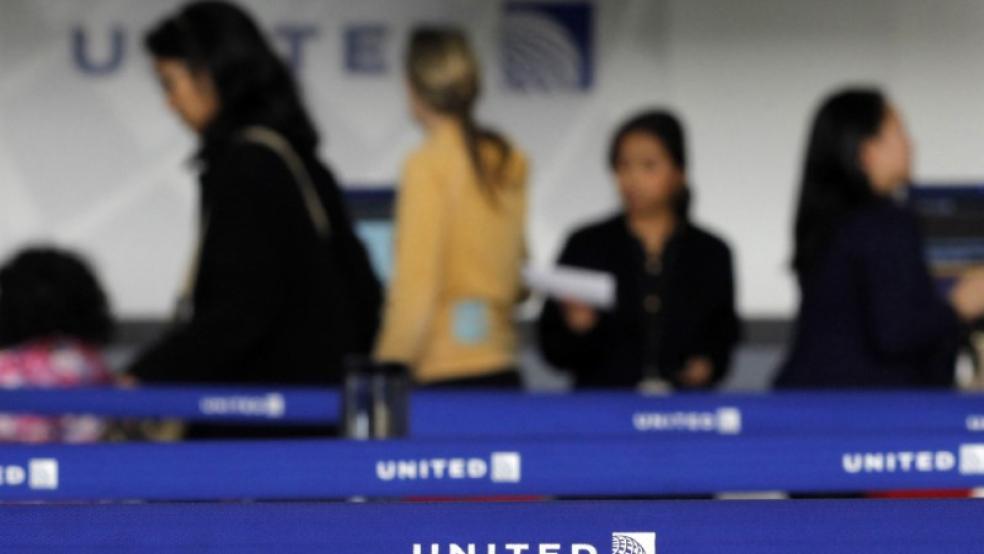Wells Fargo’s former CEO John Stumpf didn’t get it.
Uber CEO Travis Kalanick didn’t get it (and probably never will).
Now it seems to be dawning on United Airlines CEO Oscar Munoz that he didn’t get it.
Stumpf, as you may recall, was the bespoke boss of a bank fined $185 million for preying on its own clients when he went before House and Senate committees last fall and attempted to soothe the political outrage that was cheap theater in an election year.
Related: Don’t Let the Bank Door Hit You in Your Wallet Pocket, Mr. Stumpf
Instead of coming clean about Wells Fargo pressuring low-level employees to meet unrealistic sales goals, which resulted in as many as 2 million unauthorized bank and credit card accounts being opened, Stumpf blamed a few bad apples.
That didn’t work, with Senator Elizabeth Warren (D-Mass.) brutally bursting the bubble he was living in.
Not long after, Stumpf got dumped and he and an executive directly involved in applying the pressure were forced to give up millions in compensation. Earlier this week, the bank’s board said it will claw back $75 million more — $47 million from Carrie Tolstedt, former chief of the sales division, and $28 million from Stumpf.
At privately held Uber, Kalanick has done such a weak job of handling crisis after crisis — including gone-viral allegations of a corporate environment rife with sexual harassment — that Reuters reported yesterday the company is having a hard time finding a chief operating officer willing to come on board.
Related: Uber’s Toxic Corporate Culture May Not Be Its Biggest Problem
Kalanick’s idea of dealing with the “bro” culture he created was to ask board member Arianna Huffington and former Attorney General Eric Holder to look into the allegations and to state publicly: “There can be absolutely no place for this kind of behavior at Uber—and anyone who behaves this way or thinks this is OK will be fired.”
A short time later, a video of him berating one of his own drivers went viral.
As Reuters’ Heather Somerville reported, Kalanick has an iron financial grip on the company he co-founded, and because of that, he will likely continue to live in his bubble world as long as Uber remains a private concern. If Uber were public, Kalanick would be on the street hailing a Lyft.
United’s Munoz is not so lucky.
Last Sunday, videos flew around the world showing a passenger being bloodied and dragged off a United flight by three cops because he refused to relinquish the seat he had paid for to accommodate an off-duty airline employee.
Munoz first had this to say: “This is an upsetting event to all of us here at United. I apologize for having to re-accommodate these customers.”
Yesterday, a lawyer for the 69-year-old Kentucky doctor hauled off the plane, David Dao, said his client may have to have surgery after being “re-accommodated” with a broken nose, a concussion and smashed front teeth.
The New York Times quoted the lawyer, a Chicago personal injury attorney named Thomas Demetrio, as saying: “For a long time, airlines, United in particular, have bullied us…. Are we going to just continue to be treated like cattle — bullied, rude treatment?”
Demetrio said there is a “culture of disrespect” at United, and the initial response from the airline and Munoz, which smacked of in-house lawyer and so-called crisis management experts, was certainly callously corporate.
By Wednesday, after what the Los Angeles Times said were multiple attempts to defuse the public relations nightmare, Munoz was talking about his “shame” on Good Morning America and vowing that nothing like the scene in the videos will ever happen again. The airline also promised refunds to every passenger on the plane, bleeding or not.
Related: Why The United Airlines Incident Could Happen to Anyone
But for a man who in mid-March was hailed by PRWeek as “Communicator of the Year,” the pain may be just beginning.
The editor of PRWeek, Steve Barrett, wrote that he regretted choosing Munoz, adding: "In time, the episode and subsequent response will be quoted in textbooks as an example of how not to respond in a crisis."
“Communication and communications strategy is not just part of the game,” the LA Times quoted Munoz as saying when he accepted the PRWeek award, “it is the game.”
But in the social media world we live in, the game has changed. Corporate blather doesn’t work anymore even when explaining away incidents as benign as one on Mar. 26 when teenagers flying as United friends and family members were not allow to board a plane because their yoga pants were considered inappropriate under company policy. That story, first reported by a tweeting passenger, also went viral.
The whole world is a cop-car dash-cam, and the sooner great communicators — especially CEOs running major companies — realize that, the better they’ll be equipped to respond to the next crisis on Twitter.
Today, MarketWatch said that United is due to announce Munoz’s annual bonus in the next couple of weeks, and it figures he would have been collecting about $13 million since the airline’s profits have been getting fatter by using such tactics as overbooking.
Not the best timing. But maybe Munoz could get an advance on his bonus and hop the next flight to the hospital where Dao is being treated — even if he has to bump a paying passenger off the plane to get there.
Lawyer Demtrio said he didn’t know of any effort by United to contact Dao, but Munoz should have been at his bedside the day he got roughed up.
Now that’s a video that would have gone viral — in a good way.






